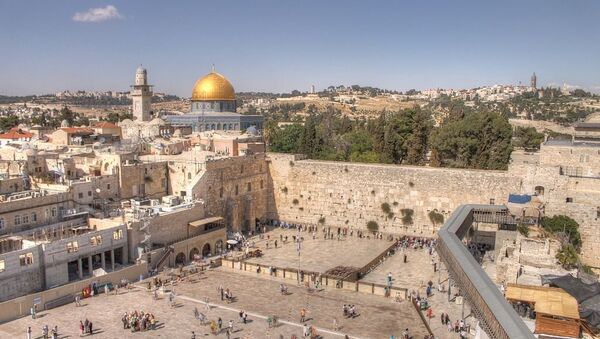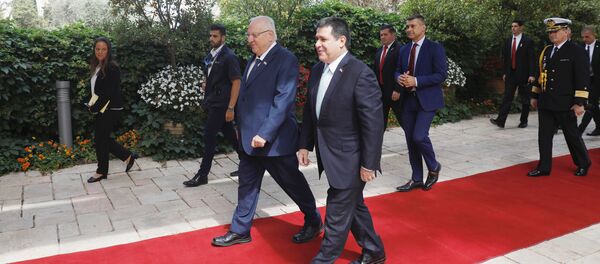"Paraguay wants to contribute to an intensification of regional diplomatic efforts to achieve a broad, fair and lasting peace in the Middle East," Castiglioni said, according to the Israeli daily Haaretz.
Now, Israel is responding by closing its embassy in Paraguay and recalling its ambassador for consultations, the Israeli Prime Minister's Office said.
The Latin American nation followed in US President Donald Trump's footsteps in May when former Paraguayan President Horacio Cartes decided to relocate the country's embassy to Jerusalem. He was the third foreign leader to do so, following Guatemalan President Jimmy Morales and Trump himself. But Paraguay's move, at least, appears to be short-lived, because after three months, newly elected President Mario Abdo Benitez was more amenable to lobbying from Palestinian Foreign Minister Riyad al-Maliki, who pushed for a reversal.
Cartes even went to Israel for a ceremony for the new Jerusalem embassy in May, which was attended by Israeli Prime Minister Benjamin Netanyahu.
The decision to move the embassy back to Tel Aviv was reportedly made a month ago, not long after the new administration was ushered in. Maliki participated in the inauguration of the new president, but the two nations decided to keep mum about the move so as not to attract pressure on Paraguay from Israel, according to Haaretz.
"The decision is in accordance with international law and [United Nations] Security Council decisions. It's a breakthrough for Palestinian diplomacy vis-à-vis the international community," Maliki said.
Paraguayan media reported that the initial decision to move the embassy to Jerusalem was unpopular in the country. Many world leaders consider the question of whether Jerusalem is an Israeli or a Palestinian city to be in dispute, and the United Nations considers East Jerusalem to be illegally occupied by Israel. The Palestinian Authority maintains that East Jerusalem is its nation's capital.



